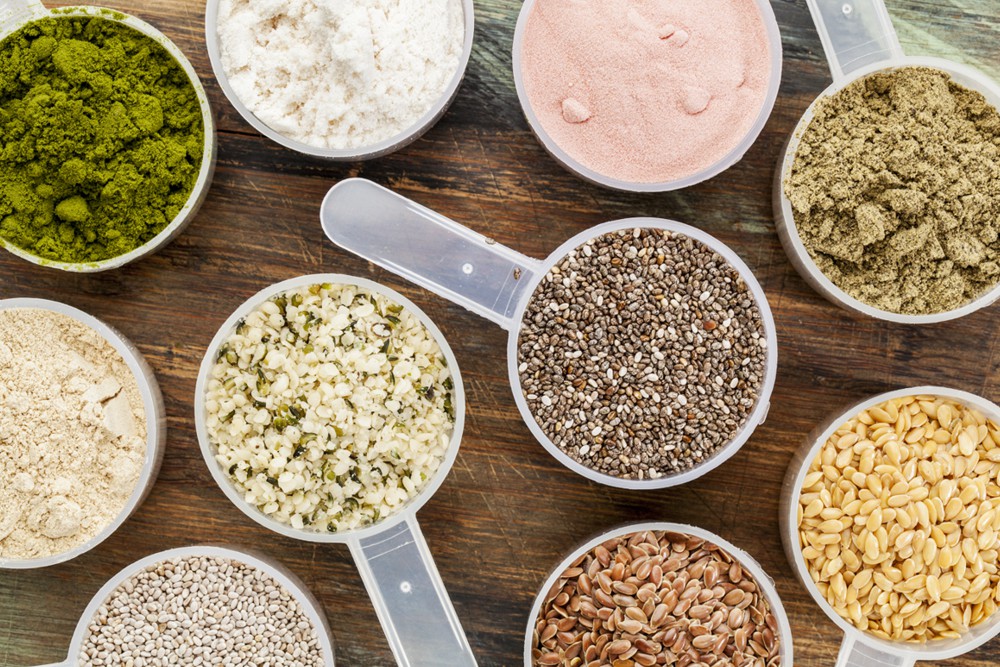
If you’re into fitness, you’re most likely aware that protein is essential for muscle growth and recovery. But what about protein supplements? Are they necessary? What should you look for? Here is the best-practice guide.
PROTEIN SUPPLEMENTS
Truth is, most people will easily reach their daily total protein targets with their usual eating habits.
WHO NEEDS THEM?
While supplementing with protein isn’t necessary for everyone, certain people can benefit from it, particularly those who are starting an intense training program, trying to gain weight, or recovering from an injury or surgery. Protein supplements can also benefit individuals who may otherwise miss out on ample dietary protein, such as the ill, the elderly and some vegetarians or vegans.
Sports Dietitians advise that protein supplements are not a replacement for good food.
Powders that are low in carbs may also compromise recovery if you don’t get the carbs from other food sources. Dairy and eggs are quality protein-rich foods and provide an array of other essential nutrients, and are often a cheaper alternative to expensive concoctions.
WHAT ARE THE BENEFITS OF SUPPLEMENTS?
For those who need extra protein, supplements can provide high-quality protein in a concentrated, convenient form that are a quick and easy-to-digest to help kick start recovery post workout, especially if you struggle with a poor appetite.
THE INGREDIENTS
Not all protein sources are created equal. There are a wide variety of protein powders available on the market, however the differences between them can vary depending on the response in the body, particularly when it comes to bioavailability and absorption; the type of protein used (animal vs plant-based); the carbohydrates content, plus any additional extras such as specific amino acids, proposed fat burners, sweeteners or additives.
Let’s take a closer look at some common ingredients:
Whey is one of the two proteins found in milk. It is the highest quality form of protein because it contains all the essential amino acids (building blocks of protein), particularly branched chain amino-acid (BCAA), such as leucine, which plays a critical role in ‘switching on’ muscle protein synthesis. There are various types of whey. Some of the more common ones include whey protein concentrate (WPC) that retains some lactose and whey protein isolate (WPI) which contains very little carbohydrates because most of the lactose is lost during processing.
Casein. Like whey, casein is another protein found in milk, however is much slower to digest and deliver amino acids to the body, keeping muscle tissue breakdown at bay.
Egg protein is typically made from egg whites and is a complete protein. It’s a good choice for people with allergies to milk protein.
Pea protein powder, which comes from the yellow split pea is a complete protein, which means it contains all nine of the essential amino acids—including BCAA. In the limited studies available, pea protein has been shown to promote fullness and increase muscle growth as effectively as animal-based protein sources, however more high-quality studies are needed to confirm any benefits for weight loss.
Hemp is another plant-based protein that is high in healthy omega-3, omega-6 fatty acids and fibre. However, it is not considered a complete protein because it has very low levels of the amino acids lysine and leucine
Soy protein is plant-based as it is made from soybeans. Similar to whey, it is fast-acting and makes a great alternative for vegans and vegetarians or those who are lactose intolerant. However soy is not a complete protein but still has a good amino acid profile. There is question as to how the soy is produced, such as via genetic modification and chemicals such as phyto-oestrogen, which may cause hormonal disturbances.
THE BOTTOM LINE
When it comes to choosing a protein supplement, it’s important to take the time to look beyond the claims and read the fine print. As with most packaged foods, the shorter the ingredients list the better. Choose quality over quantity and avoid added ingredients and fillers like milk solids, skim milk powders, dextrins (refined starch), artificial sweeteners, vegetable oils and thickeners. Nonetheless, eating a nutritious balanced diet should not be overlooked. Balancing your protein intake (e.g. nuts, dairy, lean meats, tofu, legumes) with lots of fresh vegetables, fruit and wholegrains will most likely provide your body with all the building blocks it needs so you can perform at your peak.